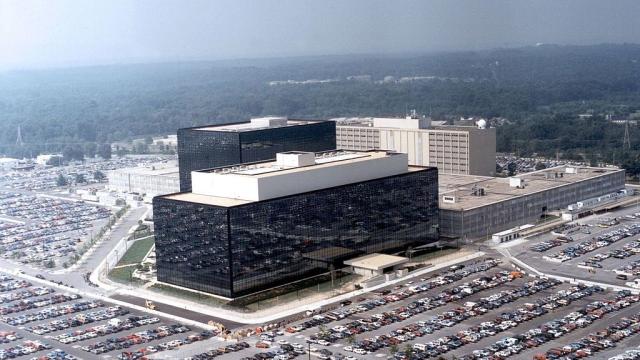In 2014, a tech company stood up to a National Security Agency demand for user data and challenged the legality of a controversial surveillance law that’s currently being debated in US Congress.
Photo: Getty
The anonymous company’s challenge was revealed in new documents released today by the Office of the Director of National Intelligence in response to lawsuits by the ACLU and EFF.
Although the identity of the company is hidden behind redactions, it’s the first public revelation of a company challenging Section 702 of the FISA Amendments Act, which requires internet service providers and telephone companies to hand customer data over to the US government.
“In the nearly 10-year history of the law, this is the first time it’s been made public that a company refused to comply with the government’s directives requiring it to turn over users’ private data under Section 702,” ACLU staff attorney Ashley Gorski wrote in a statement.
The unknown company didn’t succeed in challenging the surveillance order. “Although the primary ground for the provider challenge is redacted, the FISC ultimately upheld Section 702, and ordered the provider to comply,” EFF staff attorney Mark Rumold explained in a post discussing the documents.
Section 702 surveillance is supposed to focus on foreigners, but Americans’ communications are routinely swept up anyway. Section 702 is set to expire at the end of this year, and Congress is currently weighing its renewal — which has prompted the NSA to preemptively announce that it’s scaling back surveillance that could collect Americans’ data. However, the NSA backpedaled this week from earlier claims that it would provide Congress with an estimated number of Americans caught up in 702 surveillance.
In documents released to the ACLU and EFF on Wednesday, FISA Court judges wrote about a number of occasions in which the intelligence community disclosed lapses in “minimisation procedures”, protections intended to limit the collection of American citizens’ data and discard it promptly when it is unintentionally collected.
“The opinions show that, almost from the outset of the law in 2008, the intelligence community has overstepped the court-imposed legal restrictions on the operation of the surveillance,” Rumold wrote. “Most of the documents tell a story of the IC overstepping boundaries, getting reprimanded by the FISC, but nevertheless being allowed to continue and even expand surveillance under the law.”
